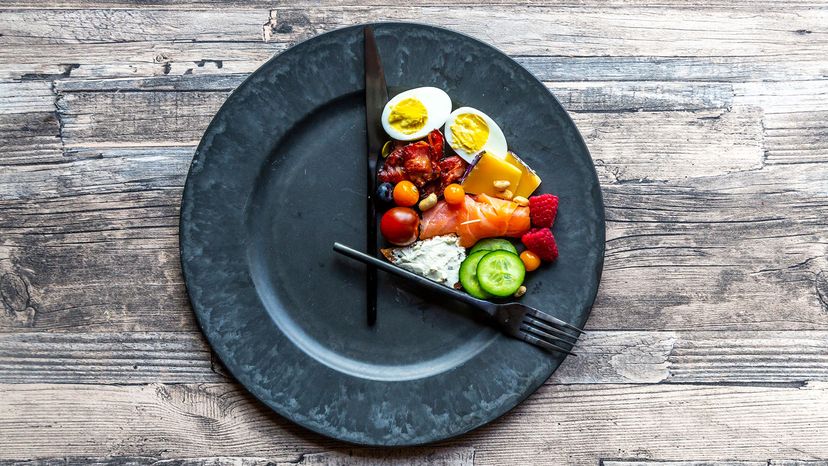
From Atkins to paleo to Keto and beyond, there has been much chatter over the last few decades about the best way to lose weight and actually keep it off. In the late 2010s intermittent fasting (IF) caught fire, thanks to blockbuster books like "The Obesity Code" and "The Fast Diet."
Intermittent fasting simply means not eating (or drinking anything with calories or artificial sweeteners) for a specific period of time. There are a number of intermittent fasting timetables out there, but the most popular is probably the 16:8 timetable, during which a person fasts for 16 hours (the "fasting window) and then uses the eight-hour window to eat ("the feeding window").
Advertisement
I'm one of the folks who's doing IF. Although challenging in the beginning, I've found it to be a largely sustainable way to lose and maintain weight and avoid common pitfalls like mindlessly snacking in front of the television at night, thanks to the clearly defined parameters. I've lost some weight, but even better, my cholesterol has improved and my blood sugar doesn't dip and spike as much as it used to.
My husband has particularly enjoyed the benefits of an IF-based program. He's down 35 pounds (15 kilograms), with lower cholesterol and now comfortably back in a size 34-waist pant. His only complaint? He had to buy a new belt (an errand he ran smugly and feeling pretty good about himself).
Still, many people are confused about IF, whether it's safe and effective, and how to you make it work. So, let's dig in and explain, starting with the science behind it.
Advertisement
